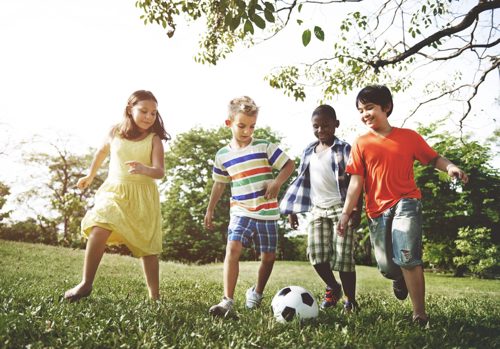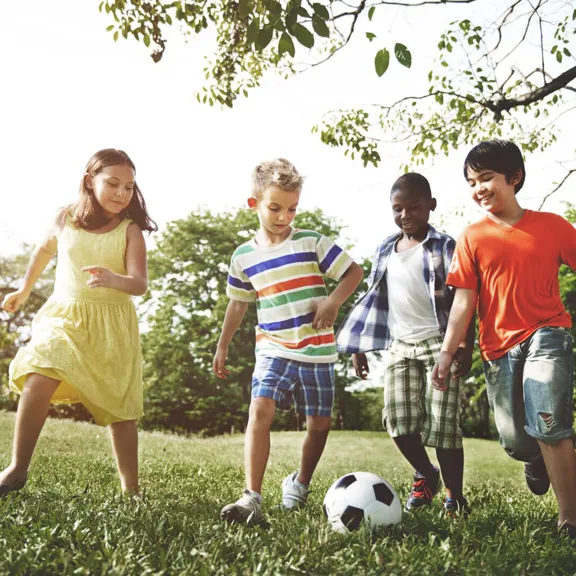Social opportunities for homeschoolers
Homeschooling has become an increasingly popular alternative to traditional education in recent years. Despite its growing acceptance, home education is still surrounded by a cloud of misconceptions, especially concerning the socialisation of homeschooled children. Wolsey Hall Oxford reached out to our homeschooling families, around the globe, to learn more about their experiences of homeschooling and socialisation. The feedback not only provides valuable insights into the social experiences of homeschooled students but also serves as a compelling testament to the diverse and dynamic social opportunities that this educational approach affords.
In this blog we hope to clarify some of the most common misconceptions surrounding homeschooling and socialisation.
Misconception 1. Homeschooled children lack socialisation opportunities
One of the prevailing misconceptions about homeschooling is the assumption that children educated at home miss out on crucial social interactions. Contrary to this belief, homeschooling offers numerous opportunities for socialisation, and homeschoolers often engage in a variety of activities beyond the confines of traditional classrooms.
Homeschooling families actively participate in co-op classes, community groups, sports, and extracurricular activities. Additionally, homeschoolers often interact with individuals of different age groups, allowing them to develop strong interpersonal skills and a diverse social network.

Misconception 2. Homeschooling isolates children from the real world
Another misconception is that homeschooling isolates children from the real world, hindering their ability to adapt to diverse social situations. In reality, homeschooling provides a unique and often more enriching environment for socialisation.
Homeschooled children have the opportunity to engage in real-world experiences, such as volunteering, internships, and community service, which can contribute significantly to their social development. The absence of peer pressure in a traditional school setting allows homeschooled children to develop confidence and independence, preparing them for the challenges they will face in the real world.

Misconception 3. Homeschooled children lack social skills
Critics often argue that homeschooled children may lack essential social skills due to limited exposure to peers. However, studies have shown that homeschooled children often exhibit strong social skills, including effective communication, empathy, and the ability to work well with others.
Homeschooling allows for more personalised and one-on-one interactions, enabling children to develop interpersonal skills in a supportive environment. Additionally, homeschooled children frequently engage in social activities outside the home, further enhancing their social competence.

Misconception 4. Homeschooled children are not prepared for the workforce
There is a misconception that homeschooling does not adequately prepare children for the workforce, as they may lack the social skills required in a professional setting. In reality, homeschoolers often develop excellent time-management, self-discipline, and problem-solving skills, which are highly valued in the workplace.
Moreover, the flexibility of homeschooling allows students to explore their interests, encouraging a passion-driven approach to learning that can lead to a deeper understanding of potential career paths. Many homeschooled individuals go on to excel in various professions, dispelling the notion that homeschooling hinders career preparedness.

What our families had to say about homeschooling and socialisation
When parents were asked about their experience of homeschooling and socialisation Wolsey Hall families had the following to say;
“I think it gives them more ability to socialise as they are not experiencing peer power of how others think they should behave, and it removes the high level of bullying that children experience today that impacts their confidence to socialise”
“My child has more time for activities – sports, art, music – which involve meeting more and diverse children than in school (where the interaction is limited to the same children over the years).”
“When my children were younger, they participated in many social activities such as learning violin, gymnastics, homeschool group social gatherings. Now they are older they socialise with a smaller group of friends – they have a diverse range of friends from various social circles.”
“School socially has inherent pitfalls and is a microcosm of wider society. We socialise as a family with friends and family, plus we travel to learn about other cultures.”
It’s essential to dispel the common misconceptions surrounding homeschooling and socialisation to encourage a more accurate understanding of this educational approach. Homeschooled children have ample opportunities for social interaction, and their diverse experiences often contribute to a well-rounded and adaptable individual. As education continues to evolve, it is crucial to appreciate the benefits and challenges of different educational choices, including homeschooling, and recognise the positive impact it can have on a child’s social development.






